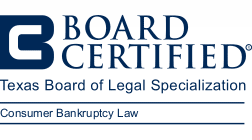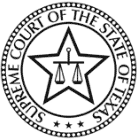What Debts Are Not Dischargeable In Bankruptcy?
 Filing for bankruptcy can provide much-needed relief from overwhelming debt, but it is important to understand that not all debts can be wiped clean. Federal bankruptcy law specifically excludes certain types of debts from discharge, meaning you would still be responsible for paying them even after your bankruptcy case closes. The good news, however, is that most of the common types of debts such as credit card debt are dischargeable. An experienced Conroe, TX bankruptcy attorney can advise you on whether filing for bankruptcy is right for you.
Filing for bankruptcy can provide much-needed relief from overwhelming debt, but it is important to understand that not all debts can be wiped clean. Federal bankruptcy law specifically excludes certain types of debts from discharge, meaning you would still be responsible for paying them even after your bankruptcy case closes. The good news, however, is that most of the common types of debts such as credit card debt are dischargeable. An experienced Conroe, TX bankruptcy attorney can advise you on whether filing for bankruptcy is right for you.
What Types of Debts Cannot Be Erased in Bankruptcy?
Priority Debts
Tax obligations top the list of non-dischargeable debts. Recent income taxes (typically within three years of filing), payroll taxes, and tax penalties generally cannot be eliminated through bankruptcy. However, older income tax debts may qualify for discharge under specific circumstances.
Student loans present another significant challenge. Whether federal or private, educational debts are extremely difficult to discharge and require proving "undue hardship," a standard that courts apply very strictly, through a separate court proceeding.
Domestic support obligations including child support, alimony, and spousal maintenance always survive bankruptcy. These debts are considered essential for family welfare and cannot be discharged under any circumstances.
Debts Related to Wrongful Conduct
Certain debts arising from harmful or illegal behavior remain your responsibility after bankruptcy. Debts from personal injury or death caused by drunk driving cannot be discharged, for instance. Similarly, debts resulting from willful and malicious injury to another person or their property will survive your bankruptcy case.
Court-ordered fines and penalties from criminal cases, including restitution to victims, remain enforceable after bankruptcy. Traffic tickets and other government penalties also typically cannot be eliminated.
Secured Debts and Special Circumstances
While secured debts like mortgages and car loans can technically be discharged, the creditor retains the right to repossess the collateral. This means you will lose the property unless you continue making payments or negotiate new terms. Homeowners association fees and condominium assessments that accrue after filing remain your obligation, as do most utility deposits required for ongoing service.
Call an Austin County, TX Bankruptcy Attorney
Understanding which debts will survive bankruptcy is crucial for making informed decisions about your financial future. If you are considering bankruptcy in Texas, consulting with the experienced Galveston, TX bankruptcy attorney at The Fealy Law Firm, PC can help you understand how federal and state laws apply to your specific circumstances and develop a comprehensive strategy for addressing both dischargeable and non-dischargeable debts. Call us at 713-526-5220 to set up a free consultation.












